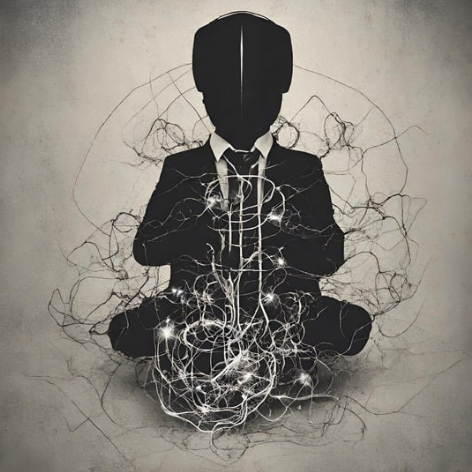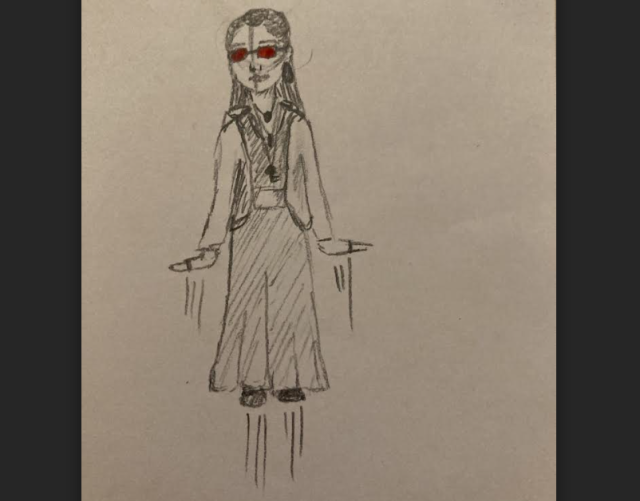
Jonas: Would I make a good dictator?
Harper: What??
J: I asked Ethan and he said no, because power corrupts people.
As a society, we possess a certain idea of what morality means. There may be minor differences in methods from person to person, but there are undeniable commonalities for everyone. This is how people gain power: they are considered the beacon of morality, and gain authority and respect through their unwavering generosity. Right?
H: In his defense, I can’t think of one morally correct person who was also a dictator.
J: I don’t think it’s because they had power though. I think that because I am a giving person, being in a place of authority would let me help more people.
H: So are you asking if you should be a good dictator, or about whether power corrupts or enhances people?
J: The second one.
In a conversation with my brother, a philosophy minor and an enthusiast for deep questions, we began to wonder whether an individual’s morality can be changed when put in a position of power. Does power have the ability to change a person’s core personality? Or does it simply reveal and enhance traits that were already there? As our discussion continued, an answer became obvious.
H: It probably enhances traits that are already there, but in a lot of cases in order to become powerful you need to do bad things, so it’s easier to become powerful when you are already corrupt.
J: But do the bad things matter if the end goal is the power to help?
H: That’s such a classic question. I mean come on, “the road to Hell is paved with good intentions” and all that.
J: But it’s so common because it’s an understandable point. I mean, if we always do what we think is right, and someone ends up hurt, isn’t it still good that we tried instead of just doing nothing?
H: Give me an example.
J: Ok… I give money to homeless people, ok? Well he uses that money to buy drugs and then he OD’s. Is that my fault?
H: No, because it’s your goal to help. You didn’t know how he was going to spend the money.
J: Exactly. Point proven.
At what point do good decisions become bad? People make mistakes; it’s a part of being human. We do our best to be good, but sometimes we mess up and hurt other people. Does this make us a bad person? Or perhaps corrupt? Not unless we don’t learn from it. However, if someone is in power and they make a mistake, how many more people are hurt by that? Power doesn’t corrupt, but it does alter. These alterations influence people, and perhaps that is where corruption stems from.
H: But if you keep giving people money knowing that it will likely hurt or enable them but you’ll face no consequences, does that make you responsible?
J: No, because I am simply giving them something to help make it through another day, what they do with the money after I walk away is none of my business.
H: Exactly. I’m not saying that we shouldn’t help homeless people, but if we have power and use it in an attempt to better the world, but we realize the way we’re doing it is hurting rather than helping, shouldn’t we change our method instead of continuing?
As people gain power, even if they start with the best of intentions, they will most likely end up corrupted. At the end of the day, human nature is inherently selfish. People who try to do good with their power will see the praise their actions get and work to earn more. If it hurts people in a way that is missed by most followers, the figure in power will face no backlash.
J: Well yeah, but not everyone notices that they’re doing more harm than good.
H: But if they did, would it change anything? Think about how long people have been “helping” homeless people without worrying about the fact that they’re only making the situation worse.
J: That’s an issue with those people though. It’s not a reason to stop trying to help.
H: I know that. I think we should definitely be helping people, but if people are ignoring any issues just because they want to say that they did something nice, that’s not helpful, it just messes everything up.
As an individual’s power grows, they may start working with the goal to help people. This, however, can change quickly. In realizing that what they’re doing gains respect without any possible consequences, they may continue to do shady things to make themselves look better. This is a classic example of the selfishness mentioned before. The idea of bettering oneself at any cost is a common one, and having the power to make these choices without any consequences would likely make that idea a reality.
J: That’s pushing the idea of corruption though. I don’t think that would happen if someone wasn’t already selfish.
H: At the end of the day, isn’t everyone just a little selfish though? So power making them more selfish isn’t corruption, it’s still enhancing; I just think negative traits are gonna be more enhanced than positive.
J: I mean yeah, bad traits are going to exist. Everyone is flawed though, so why not assume that the effort of goodness will be enhanced too?
H: Because I’m a cynical b**ch?
As powerful figures grow, they begin to realize actions that wouldn’t have been possible before are suddenly an option. Yes this could mean they work to make things better, but it also gives the opportunity to follow through with some less optimal goals. The question of morality then comes into play, as the powerful person does what they feel is right for them and others may be impacted on a larger scale than if a “nobody” were to make the same decision. Power does not turn people evil, but it gives the negative actions or mistakes a larger ripple. The idea of corruption in powerful people is therefore inaccurate, as basic human flaws like selfishness take over and those flawed decisions are able to reach people on a larger scale.



